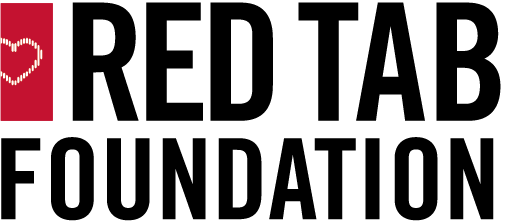Case Manager Spotlight: From Anti-Apartheid to BLM
Lavinia and the Archbishop Desmond Tutu
“If you are neutral in situations of injustice, you have chosen the side of the oppressor.” — Desmond Tutu
For Lavinia Crawford-browne, her activism began with an act of resistance. “We refused to have our son’s name submitted for enlistment into the white-only army supporting the white supremacist apartheid government in the ‘80s,” she said. “That began our journey in the movement.”
Lavinia, a South African resident and currently a Red Tab Foundation Case Manager at our Epping Manufacturing facility, joined the anti-apartheid movement, bringing her all the way to the leader behind the fight — Nobel Peace Prize winner and human rights activist, Archbishop Desmond Tutu himself. She became his personal assistant, a job she would hold for more than two decades, supporting Tutu in his efforts to dismantle apartheid, South Africa’s system of institutionalized racial segregation that existed from 1948 until the early 1990s.
Offering support to those in unstable financial situations while uplifting South Africans parallels the work she does today through the Red Tab Foundation, an emergency aid foundation for Levi Strauss & Co. employees that offers critical, life-saving interventions for our employees. This translates to putting new roofs on peoples’ homes in the rainy seasons, securing schoolbooks for employee’s children and relief in times of crisis.
Given Lavinia’s role in the human rights space and today’s reawakened crisis around racial injustice in the U.S., we sat down with Lavinia to talk about her human rights efforts and how the learnings in South Africa can apply to our situation in America today.
How did you become engaged in the anti-apartheid movement to begin with?
My husband and I joined the movement opposing apartheid in the 1980s. We were conscientized when our 16-year-old son was up for conscription into the South African army. This was a white-only army that was enlisted to support the white supremacist apartheid government. We refused to allow our son’s name to be submitted, and that began our journey. I had been a housewife raising our two kids but went back to work as personal assistant to the Anglican (Episcopal) Archbishop. Shortly after, Desmond Tutu succeeded him, and the rest became history.
What similarities or differences do you observe between the struggle to end apartheid and the movement to end racial injustice in America?
What was exceptional about the South African struggle for freedom was the intensity with which the anti-apartheid movement spread across the world, particularly in the U.S., where there were parallels with the Civil Rights Movement. Individuals, such as Desmond Tutu, played a decisive role in galvanizing nations into action, especially young people. The support of the international community was a very important component in achieving our democracy. No other movement has gained such widespread international support, except possibly opposition to the Vietnam War.
Sadly, there is little reciprocal support in South Africa for the Black Lives Matter movement. Our struggle against apartheid was a struggle for the rights of the oppressed but many viewed it as a struggle for freedom. Freedom is personal and this has not translated into support for human rights elsewhere. If you are concerned for human rights, it is intrinsic that you are concerned for the rights of others.
What learnings from your work with Tutu would you share with people in the U.S. right now?
The intention of the struggle against apartheid was to achieve a non-racial, non-sexist, democratic society. This is what Desmond Tutu envisaged and for which many of us hoped.
Basic to Desmond Tutu’s faith is the value of each human individual — he views each person as a child of God, a “God-carrier” and therefore worthy of utmost respect. This ties with the African notion of “ubuntu” — I exist because you exist, my humanity depends on your humanity — we can only be fully human together. It is a notion of wholeness and complementarity — a celebration of differences and viewing these as enriching, whether these be cultural, gender, sexual orientation, race, language or any other factor.
Want to learn more about what Red Tab Foundation does for employees around the globe? Head to redtabfoundation.org or check out their latest Annual Report.
Tell us about one of the highlights of your human rights work.
Opening the front door of the Archbishop’s residence to Nelson Mandela and his wife Winnie on the first night of Mandela’s release from prison. They were to stay overnight, and I was up half the night on the switchboard putting through calls of congratulations from Presidents and dignitaries from around the world.
How does your background inform the work you do with the Red Tab Foundation?
I hope I have learned something of empathy; that I can “be there” for each employee — to listen, be non-judgmental and build trust. I try to use my privilege as a tool to assist those without access to some of the advantages many of us take for granted.
The Red Tab Foundation is unique. The grants we give are often a lifesaver for Epping employees. The LS&Co. values are truly amazing in a world where “profits at any price” is often seen to be the norm. The opportunity to be an agent of change in people’s lives through the Red Tab Foundation is, frankly, AWESOME. I can’t thank employees enough for their support of the foundation. I could tell you a hundred stories whereby you gave dignity and hope to a member of the LS&Co. family.

